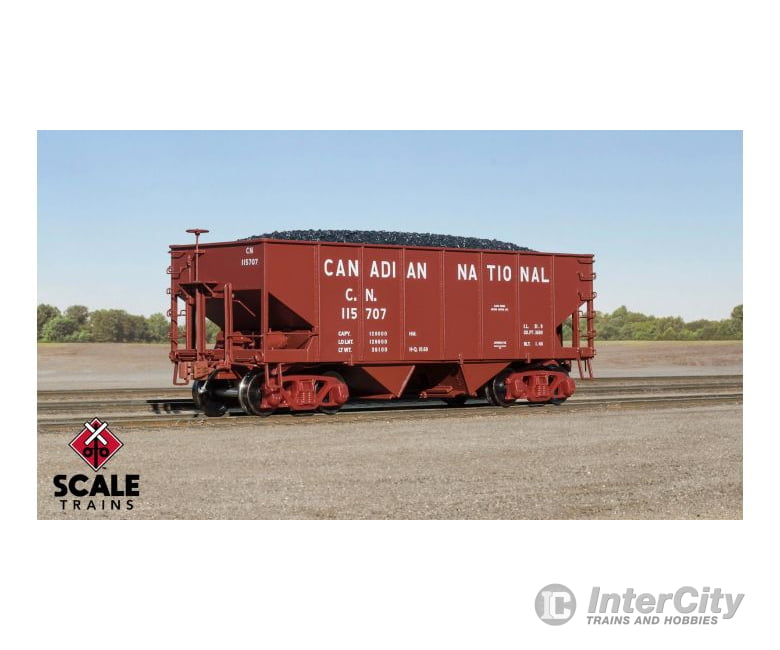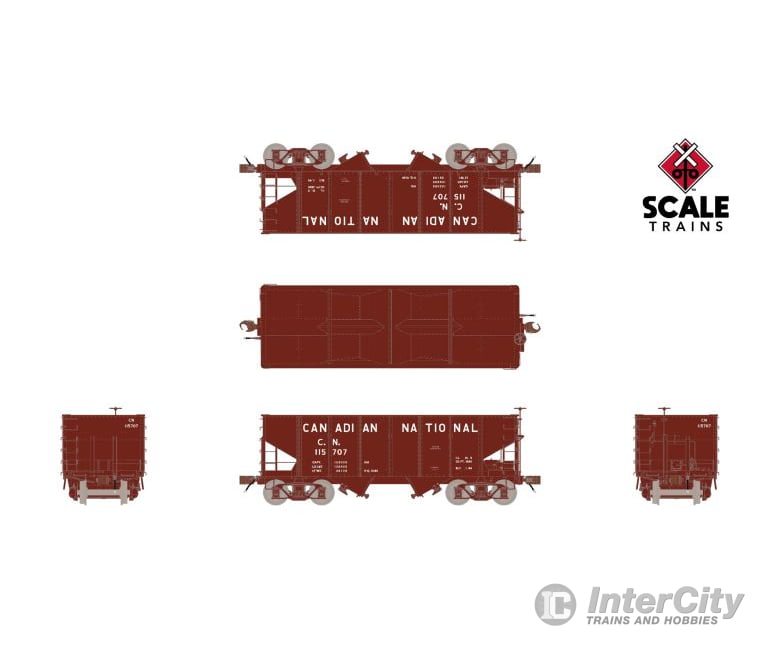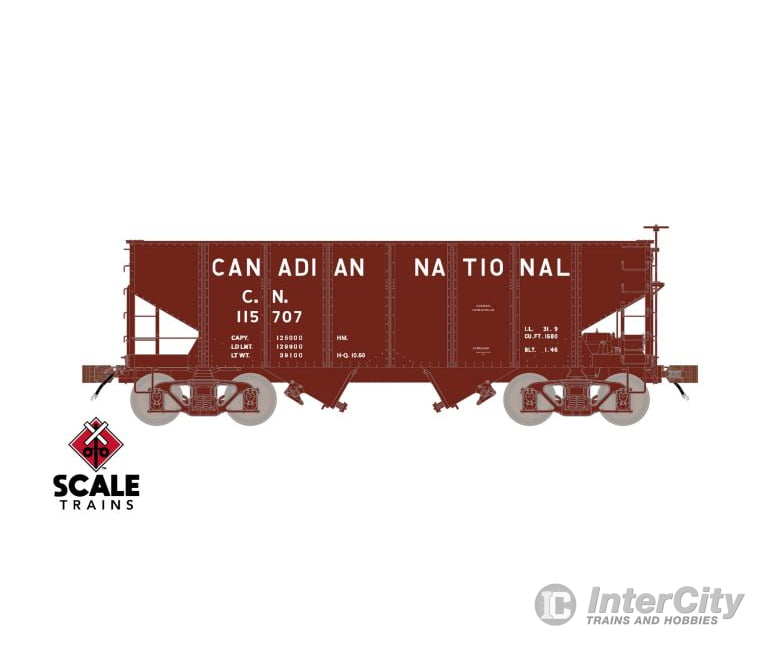Description
Coal hopper cars were specially designed in the late 1800s to transport coal to railroads, factories, and homes. The basic design had an open top for loading, slope sheets for unloading, and bays with doors for quick unloading. The design was improved over time to increase capacity, and the US Railroad Administration standardized the 55-ton all-steel open hopper during World War I. Over 22,000 were produced and widely used through the 1960s and early 1970s.
Prototype Specific ScaleTrains
- Multiple road numbers
- Fully assembled
- Finely cast stirrup steps; end ladders; underbody and brake system
- Wire grab irons
- Separately applied handbrake wheel
- Detailed trucks
- 33” Machined metal wheels
- Accurately profiled .110″ wide wheel tread
- Plastic semi-scale Type E knuckle couplers, Kadee compatible
- Body mounted coupler box will accept Kadee whisker couplers
- Weighted to Industry standards
- Operates on Code 70, 83 and 100 rail
- Packaging safely stores model when assembled
- Minimum radius 18”
Beginning with steam locomotives, railroads needed a way to transport the black diamond of fuel: coal. While gondolas could do the job, specially designed cars were developed in the late 1800s to haul the commodity. As a result, coal hoppers would become one of the most numerous types of cars built. Their specific purpose was to bring coal from the mines to the end customers – railroads, factories and coal yards for home delivery.
Coal hoppers had a basic design of a large open top area for loading, slope sheets on the interior to aid in unloading, and bays at the bottom with door that would open to quickly unload a car. From there, designers always tried to find a way to increase capacity from a basic design.
When America's railroads were nationalized during World War I, the United States Railroad Administration (USRA) created a series of standardized freight cars. One of the most popular designs was the 55-Ton all-steel open hopper, of which 22,000 were produced. After the war, the USRA adopted the design as its standard practice, and near-clones were built by the tens of thousands – the majority of which worked long enough to be seen through the 1960s and early 1970s.






